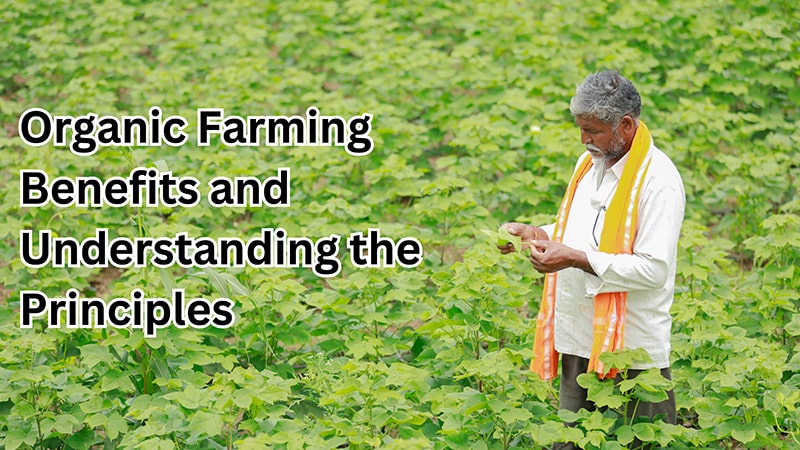Introduction:
Organic farming has gained significant momentum in recent years, spurred by an increasing awareness of the importance of sustainable agricultural practices. While the term “organic” has become prominent on grocery store shelves, it is essential to delve deeper into understanding the principles and benefits that underpin this farming method. In this blog article, we will explore the key aspects of organic farming, including reduced environmental hazards, soil management, crop rotation, pest control, crop management, and the utilization of animal waste. By shedding light on these topics, we aim to provide a comprehensive understanding of the significance of organic farming practices.
1. Reduced Environmental Hazards:
Organic farming aims to minimize the use of synthetic chemicals and genetically modified organisms in agriculture. Unlike conventional farming methods, organic farming discourages the use of chemical pesticides, herbicides, and synthetic fertilizers. By reducing reliance on these substances, organic farming helps prevent soil degradation, water pollution, and harmful impacts on biodiversity. Additionally, organic farming practices promote the conservation of natural resources, thus contributing to a healthier and more sustainable environment.
2. Soil Management:
One of the fundamental principles of organic farming is caring for the soil health. Organic farmers prioritize engaging in practices that enhance soil fertility and prevent soil erosion. Instead of relying on chemical fertilizers, organic farmers employ methods such as composting, crop rotation, and the use of cover crops to maintain and enrich the soil’s organic matter content. This approach improves soil structure, water-holding capacity, and overall nutrient availability, ensuring long-term productivity and sustainability.
3. Crop Rotation:
Crop rotation is a crucial technique used in organic farming to minimize pests and diseases while enhancing the vitality of the soil. By alternating crops seasonally, organic farmers disrupt the life cycles of pests and pathogens, reducing the need for chemical interventions. Moreover, specific plant combinations in crop rotation can enhance the biological diversity in the soil, foster beneficial insects, and strengthen natural pollination processes. This natural approach further enhances the overall resilience of the farm ecosystem.
4. Pest Control:
Organic farming employs a holistic and integrated pest management approach, prioritizing prevention and biological control methods over chemical interventions. By encouraging natural enemies of pests and enhancing biodiversity, organic farmers reduce reliance on synthetic pesticides. Utilizing techniques such as companion planting, trap cropping, and beneficial insects, organic farmers successfully manage pest populations while protecting the health of both humans and the environment.
5. Crop Management:
Organic farmers prioritize the use of natural methods to manage crop health and growth. This includes the use of organic compost, manure, and natural amendments to provide necessary nutrients to crops. Additionally, organic farmers may employ techniques like mulching, mechanical weeding, and proper irrigation practices to maintain optimal crop conditions. These sustainable crop management strategies help minimize environmental impact while ensuring high-quality, nutrient-rich produce.
6. Utilization of Animal Waste:
Organic farmers integrate animal waste into their farming practices to optimize nutrient cycling and fertility. By utilizing well-managed livestock operations, organic farmers can transform animal waste into valuable compost and manure, contributing to healthy soil and plant nutrition. This closed-loop system reduces reliance on synthetic fertilizers and enhances overall farm sustainability by using resources efficiently.
Conclusion:
Organic farming represents a holistic approach to agriculture that goes beyond labels. By understanding and embracing the principles and benefits of organic farming practices, we can contribute to a more sustainable future. Reduced environmental hazards, soil management, crop rotation, pest control, effective crop management, and the utilization of animal waste are the cornerstones of organic farming. By promoting biodiversity, conserving natural resources, and prioritizing long-term sustainability, organic farmers play a vital role in fostering a healthier planet and supplying consumers with safe, nutrient-rich
Know More About Prince Khanuja And Khanuja Group




